Participants
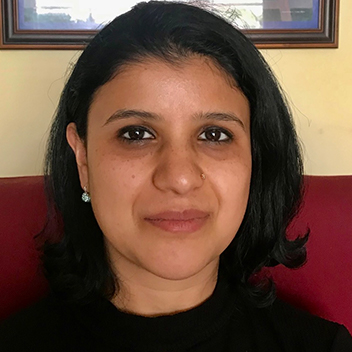
Riddhi Bhandari
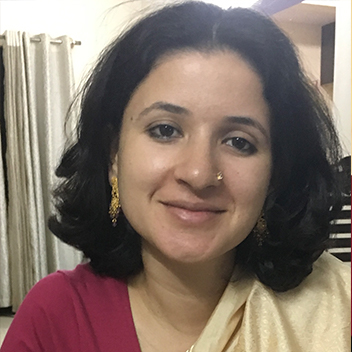
Siddhi Bhandari
Siddhi Bhandari holds a PhD from the University of Delhi, where she worked on the sociology of photography for a thesis titled ‘Photographers and Photography: A Sociological Study’. At present, she is Faculty at the Srishti Manipal Institute of Art, Design and Technology, Bengaluru, India. Her research and teaching interests include research methods in the social sciences, material culture, visual culture and oral history.

Gowhar Fazili
He has taught Political Science and Sociology at undergrad and postgrad levels and his areas of academic interest include masculinity, political subjectivity, anthropology of emotions, literature as an archive of political emotion, humiliation, social movements, fascism and totalitarianism. Currently, his focus is on the idea of implicated subject and collective/political responsibility towards the other and its implications for the Pandit-Muslim relationship in Kashmir.
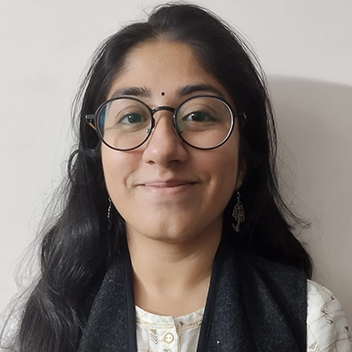
Sriti Ganguly
Sriti Ganguly is an Assistant Professor at the School of Liberal Arts and Humanities, O.P. Jindal Global University, Haryana, India. Her research interests include urban sociology, sociology of education, mothering and youth cultures. She has published in the British Journal of Sociology of Education, Economic and Political Weekly, Contemporary Education Dialogue and contributed chapters to edited volumes. She is currently part of an ongoing project on understanding gender, mobility and urban spaces. She is also co-leading a research constellation on culture and media studies at the newly formed Office of Interdisciplinary Studies at O.P. Jindal Global University.

Ravi Kumar
Ravi Kumar teaches Sociology at South Asian University, New Delhi. Prior to joining South Asian University he has been a faculty at Jamia Millia Islamia and Council for Social Development, New Delhi. He has been visiting faculty at Anglia Ruskin University, UK and National Institute of Design, India. His areas of specialisation include politics of knowledge production, social movements, social theory in general and Marxism in particular, political economy of identity formation and South Asian studies. His works include [2022] The New Republic: Populism, Power and the Trajectories of Indian Democracy; [2020] Organising Against Capitalism: Remembering Rosa Luxemburg; [2019] Against The Nation: Thinking Like South Asian; [2018] Sociology and Social Anthropology in South Asia: Histories and Practices, [2016]; [2018] Left Politics in South Asia: Reframing the Agenda; [2016] Contemporary Readings in Marxism: A Critical Introduction; [2015] Neoliberalism, Critical Pedagogy and Education; [2014] Social Movements: Transformative Shifts and Turning Points; [2012] Education and the Reproduction of Capital: Neoliberal Knowledge and Counterstrategies. He was Associate Editor of Society and Culture in South Asia (Sage). He co-edits book series titled Social Movements, Dissent and Transformative Action (Routledge: Delhi).
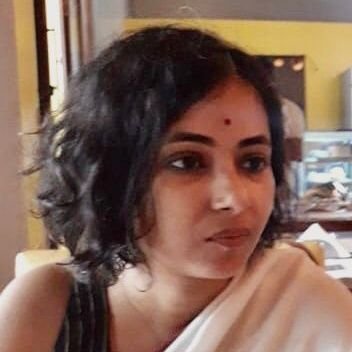
Atreyee Majumder
Atreyee Majumder is an anthropologist. She earned her doctoral degree from Yale University. She has been a Mellon Postdoctoral Fellow at the Jackman Humanities Institute, University of Toronto. Her doctoral work on industrial decline and spatial life in eastern India culminated in her first book Time, Space, and Capital in India: Longing and Belonging in an Urban-Industrial Hinterland (Routledge, 2018). Her current research agenda is located at the intersection of anthropology, theology, and the philosophy of religion, specifically concerned with the devotional practice of Bhakti in Vrindavan in northern India.

Gayatri Menon
Gayatri Menon is a historical sociologist. She works on the political economy of development, focusing on urbanization, displacement, and questions of home. She has taught at the graduate and undergraduate levels, and in India and the US. She is currently working on urban health as a consultant at the Public Health Foundation of India’s Ramalingaswami Centre on Equity and Social Determinants of Health. She co-edited Accumulating Insecurity: Violence and Dispossession in the making of Everyday Life (University of Georgia 2011) along with Shelley Feldman and Charles Geisler, and has also published her research in peer-reviewed journals and other publications. She also has extensive experience in the NGO sector, and currently serves on the board of a few different organisations in India.

Dev Nath Pathak
Dev Nath Pathak is associate professor and chairperson of the Department of Sociology at South Asian University, New Delhi. He researches and writes on performative expressions and cultural politics in South Asia, and some of his monographs are In Defence of the Ordinary: Everyday Awakenings (2021) and Living and Dying: Meanings in Maithili Folklore (2018), in addition to several edited books and research articles in reputed national and international journals and fellowships at various institutions of eminence such as Charles Wallace fellowship at Queen’s University, Belfast. Some of his edited books include Another South Asia (2018), Performative Communication: Culture and Politics in South Asia (2017), Investigating Developmentalism: Notions of Development in the Social Spheres (2019), Seeing South Asia: Visuals Beyond Borders (2021), Neighbourhood and Neighborliness in Urban South Asia (2022). Currently, he is editor in chief of the journal Society and Culture in South Asia (published by Sage).

Pranta Pratik Patnaik
Pranta Pratik Patnaik teaches in Department of Culture and Media Studies, Central University of Rajasthan. After pursuing his Masters in Sociology from Jawaharlal Nehru University (JNU) New Delhi, he specialised in sociology of gender and media during his M.Phil and Ph.D from University of Delhi. His areas of interest include cultural studies, globalisation, gender & sexualities, qualitative research, television and cinema studies. He has published on topics ranging from developmental discourses, politics of representation of the body, gender, space, identity, and sexuality on television and cinema. Currently, he is working on media labour and online activism.

Rituparna Patgiri
Rituparna Patgiri is an Assistant Professor of Sociology at the Department of Humanities and Social Sciences, Indian Institute of Technology (IIT), Guwahati. She is a co-founder of Doing Sociology – an academic, open-access digital platform dedicated to promoting sociological awareness. She is also serving as the Associate Editor of Society, a SCOPUS indexed, peer-reviewed journal published by the Springer Nature group. Her research interests lie in exploring questions of culture, food, media, gender and pedagogy.

Ravi Nandan Singh
Ravi Nandan Singh is an associate professor of Sociology at Shiv Nadar Institution of Eminence (SNIoE), Delhi-NCR. His broader research interests include anthropology of death and the dead, medical sociology, forms of religious and spiritual lives, morbid humour, names, and kinship. His ethnographic work on crematoria in Banaras and Denmark has been published in Contributions to Indian Sociology and Society and Culture in South Asia. His book ‘Dead in Banaras: Ethnography of Funeral Travelling’ has been recently published by the Oxford University Press (2022).

Rukmini Sen
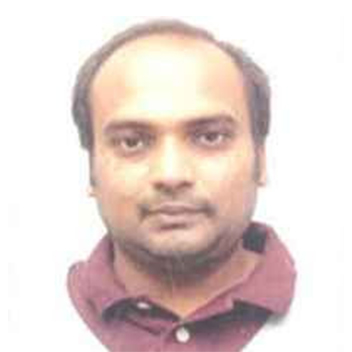
Prasenjeet Tribhuvan
Dr. Prasenjeet Tribhuvan is a Social Anthropologist. He completed his PhD from the Department of Sociology, Delhi School of Economics, Delhi University. He is currently an Assistant Professor of Sociology at IIT, Jodhpur and a former Fellow at Indian Institute of Advanced Study, Shimla. His research interest are mainly in the areas of STS, Anthropology of Material objects and Ethnographic studies of communities in ecologically sensitive regions. His book titled “Decolonizing Cannabis: History, Hegemony and Opportunities” to be published by IIAS publications is currently in the works.

Ashwin Varghese
Dr. Ashwin Varghese is a sociologist studying power relations, policing and state development. He is a Post-doctoral Research Associate at the Centre of Governance and Human Rights, University of Cambridge. He has taught sociology at O.P. Jindal Global University, India. He has spent nearly seven years studying policing and state formations in India. His broader research interests include political sociology, algorithmic governance, sociology of law, governance, political economy, theories of everyday and ethnographic methods.

Snigdha Vishnoi
Dr. Snigdha Vishnoi teaches sociology at School of Liberal Studies, Dr. B. R Ambedkar University Delhi. She did her Masters, M.Phil and PhD from Department of Anthropology, University of Delhi. Her interest areas include Applied Anthropology, Qualitative Research, Ethnographic studies, Organizational Culture, Work-People Relationship, Research Methods, Pedagogical experiences, Corporate Community Interface. She has an eye for human behaviour at diverse settings, sociological and anthropological gaze on workplaces, diversity management, inclusive/ representative cultures. She is also a photography enthusiast and enjoys experimenting with a differing range of creative expressions of academic knowledge and information. Her reflective writings are inspired from observing the nuance in everyday life and patterns emerging from the same. She has previously taught various interdisciplinary papers and batches at Department of Anthropology, University of Hyderabad, TERI-SAS, NLU-Guwahati, Amity University before joining AUD.